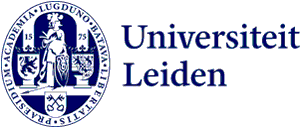
Medical milestone at LUMC: first Dutch patient receives CAR T-cell therapy for autoimmune disease
The LUMC has become the first institution in the Netherlands to treat a patient with an autoimmune disease using CAR T-cell therapy. This marks a significant step towards assessing this innovative therapy in clinical trials for autoimmune conditions.
From cancer to autoimmune diseases
CAR T-cell therapy is a promising treatment for patients with autoimmune diseases. International centres have reported impressive outcomes in small patient groups, with some even suggesting a potential for a cure. While CAR T-cell therapy is currently only used for cancer treatment in the Netherlands, its potential application in autoimmune diseases has yet to be explored.
This is largely due to the absence of large-scale studies, which are still in their early stages in the Netherlands. Nor are there national protocols or reimbursement schemes in place for this treatment. Despite these challenges, the national centre of expertise for neurological lupus at the LUMC has now administered CAR T-cell therapy to a patient for the very first time.
Professor of Rheumatology Hans Ulrich Scherer explains how this was possible: ‘To administer this innovative treatment, the LUMC received special authorisation from the Health and Youth Care Inspectorate to treat a single patient with a very severe form of neurological lupus with CAR T-cell therapy.’
In this autoimmune disease, the immune system malfunctions. Normally, a specific type of white blood cell, known as a B cell, helps fight infections by producing antibodies against harmful bacteria, viruses and fungi. But in some cases certain B-cells, known as autoreactive B cells, mistakenly produce antibodies against the body’s own healthy cells and proteins. These antibodies, known as autoantibodies, trigger the immune system to attack its own tissues, leading to inflammation and damage to organs and tissues.
Patients with autoreactive B cells are often treated with immunotherapy designed to target and destroy B cells. ‘This treatment is effective in eliminating B cells, including autoreactive ones, from the bloodstream’, says Scherer. ‘But current therapies often fail to penetrate tissues such as muscles, tendons, connective tissue, bone marrow and organs. Not all autoreactive B cells are eradicated, meaning the therapy is not always successful, and the disease often returns once these cells repopulate. CAR T-cells offer a promising solution because they are capable of infiltrating tissues and organs. With its extensive knowledge, expertise and faculties, the LUMC is fully equipped to safely administer CAR T-cell therapy to patients with autoimmune diseases where autoreactive B cells play a key role.’
What is CAR T-cell therapy?
Until recently, CAR T-cell therapy was used exclusively in cancer treatment, where it is considered a major breakthrough. Unlike chemotherapy, CAR T-cell therapy specifically targets cancer cells, while leaving most healthy cells untouched. This causes fewer harmful side effects and often greater efficacy.
Immune cells – specifically T cells – are extracted from the patient’s blood and genetically modified in the laboratory to recognise and destroy cancer cells. The patient then receives the modified cells, now called CAR T-cells, through an intravenous drip enabling the body to fight cancer on its own. In cancer patients, this method has shown long-lasting effects: the modified T-cells often remain in the body for extended periods and continue to identify and eliminate cancer cells, reducing the risk of relapse.
More recently, researchers have discovered that the same principle can be applied to eliminate cells that play a key role in the development of autoimmune diseases.
Investing in CAR T-cell therapy
For decades, the LUMC has made cell therapy a strategic priority. Thanks to substantial investment, it has established a production facility, the Centre for Cell and Gene Therapy, where researchers develop CAR T-cells in-house. This significantly reduces the time between collecting the patient’s blood and reinfusing the CAR T-cells. Over the past years, LUMC has also built extensive expertise in CAR T-cell therapy, refining both its clinical practice and laboratory research.
Hendrik Veelken, head of the Department of Haematology, highlights the impact of this approach: ‘Doctors, nurses, researchers and analysts have gained a wealth of specialised knowledge through years of experience. Our team knows exactly how to administer this treatment safely and effectively, and they are well-versed in the legal and regulatory requirements. The knowledge we’ve developed in cancer care has now enabled us to take the first steps in applying CAR T-cell therapy to autoimmune diseases.’
First patient in the Netherlands
The patient received CAR T-cell therapy in February and is doing well. No autoantibodies have been detected following treatment, allowing the patient to discontinue immunosuppressive medication. Physical improvements have also been observed, including a significant reduction in spinal cord inflammation. The patient has also regained the use of certain core muscles that were previously non-functional.
‘The close collaboration between haematologists and rheumatologists at LUMC has been instrumental in achieving this crucial first step in applying CAR T-cell therapy to autoimmune diseases. However, it will still take some time before this treatment becomes standard practice. The LUMC remains at the forefront of innovation, striving to introduce this groundbreaking therapy into clinical trials. Such studies are essential for scientifically validating the safety and efficacy of CAR T-cell therapy in treating autoimmune diseases’, says Scherer.
